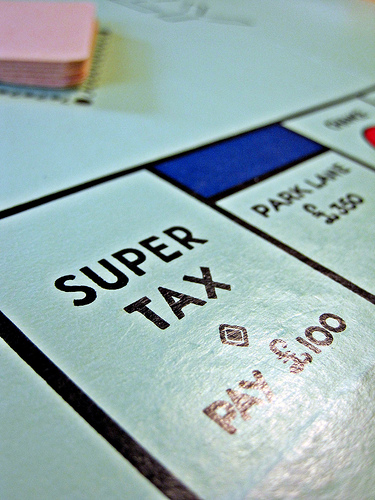At the start of every new year, I always think about fresh starts and new habits. It reminds me a...
Your Commission Isn’t the Problem. Your Bookshelf Might Be
read more
 Agents often ask me about the property taxes associated with a short sale. Should the seller pay the property taxes? What happens when the lender escrows property taxes? What happens if property taxes are overdue?
Thankfully, these are easy questions to answer.
When a short sale package is submitted to the bank, the short sale package includes an estimated settlement statement. The estimated settlement statement (also known as a HUD-1) itemizes all of the costs associated with the short sale through the projected closing date.
A savvy escrow officer, title officer, listing agent, or short sale processor will investigate the amount of property taxes owed on the property and include those taxes on the estimated settlement statement that has been submitted to the short sale lender for approval. (This information can usually be found on the Internet by checking out the city or county tax rolls. Or, you can also find the information on a preliminary title report.)
In our experience, the short sale lender generally pays the property taxes out of their proceeds. Why wouldn’t they? If they foreclose, they will have to pay those taxes anyway.
However, what happens if the property taxes were not calculated correctly on the settlement statement or if new property taxes suddenly appear either on the title report or on the tax rolls?
Well, there are two options here. The first option would be to return to the short sale lender and request that the lender pays those property taxes. Another option would be for the seller or another party to the transaction to pay those taxes.
The key here is to not find yourself in that position. If you do your due diligence (your homework) and research and calculate correctly at the beginning of the transaction, you will not be short any money for property taxes when the short sale approval letter finally arrives in your email inbox.
Just imagine: you may actually get that short sale closed!
Photo: flickr creative commons by images_of_money
Agents often ask me about the property taxes associated with a short sale. Should the seller pay the property taxes? What happens when the lender escrows property taxes? What happens if property taxes are overdue?
Thankfully, these are easy questions to answer.
When a short sale package is submitted to the bank, the short sale package includes an estimated settlement statement. The estimated settlement statement (also known as a HUD-1) itemizes all of the costs associated with the short sale through the projected closing date.
A savvy escrow officer, title officer, listing agent, or short sale processor will investigate the amount of property taxes owed on the property and include those taxes on the estimated settlement statement that has been submitted to the short sale lender for approval. (This information can usually be found on the Internet by checking out the city or county tax rolls. Or, you can also find the information on a preliminary title report.)
In our experience, the short sale lender generally pays the property taxes out of their proceeds. Why wouldn’t they? If they foreclose, they will have to pay those taxes anyway.
However, what happens if the property taxes were not calculated correctly on the settlement statement or if new property taxes suddenly appear either on the title report or on the tax rolls?
Well, there are two options here. The first option would be to return to the short sale lender and request that the lender pays those property taxes. Another option would be for the seller or another party to the transaction to pay those taxes.
The key here is to not find yourself in that position. If you do your due diligence (your homework) and research and calculate correctly at the beginning of the transaction, you will not be short any money for property taxes when the short sale approval letter finally arrives in your email inbox.
Just imagine: you may actually get that short sale closed!
Photo: flickr creative commons by images_of_moneyAt the start of every new year, I always think about fresh starts and new habits. It reminds me a...
Every December, something funny happens in real estate. The phones quiet down just a little....
Over the last month, I’ve had the opportunity to hobnob with some really successful real estate...